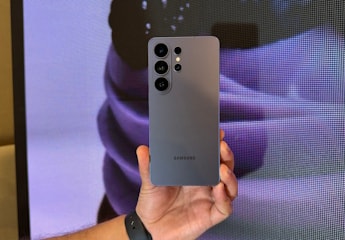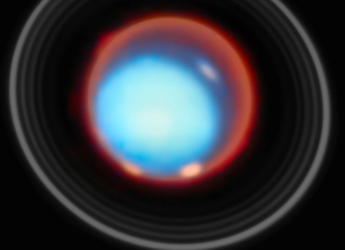- Home
- Science
- Science Features
- Reflect Orbital Plans to Light Up Parts of Earth Where Sunlight Does Not Reach by April 2026
Reflect Orbital Plans to Light Up Parts of Earth Where Sunlight Does Not Reach by April 2026
Reflect Oribital recently sought approval from the US FCC to launch its sun-reflecting satellites.

Photo Credit: Pixabay
Reflect Orbital will begin providing its "World Tour" lighting experience by Spring 2026
Satellites have been orbiting the Earth since the middle of the last century. The erstwhile USSR launched the first artificial satellite — Sputnik 1 — on October 1, 1957. Since then, there has been no looking back for humans as more complex applications of the technology have come up, like satellite communications (Satcom), which are designed to make people's lives easier. Now, US-based startup Reflect Orbital plans to harness the light emitted by the Sun to produce energy, aid farming, and allow emergency response teams to function at night. However, the application comes with its own set of issues and limitations.
Reflect Orbital Promises to Utilise Sun's “Unending Energy” For Sustainable Illumination
According to a report by Communications Daily, Reflect Orbital has sought approval from the US Federal Communications Commission's (FCC) Space Bureau to test launch its Earendil-1 non-geostationary orbit satellite. The company plans to conduct the test by April 2026. The Earendil-1 is reportedly designed to reflect sunlight to a precisely targeted location on Earth.
According to DigitalTrends, Reflect Orbital plans to create a constellation of about 4,000 satellites by the end of the decade. This particular constellation of satellites will act like giant mirrors in space around Earth, which will reflect the sun's “unending energy” to redirect sunlight to darker or dimly lit parts of the ground.
Reflect Orbital Chief Executive Officer (CEO) and Co-Founder, Ben Nowack, recently announced in a post on X (formerly Twitter) that the tech company closed a $20 million (roughly Rs. 180 crore) Series A funding round. The leading investors in the funding round were Lux Capital, Sequoia Capital, and Starship Ventures. “We will start by providing light similar to a full moon, and build to full noon. Anywhere on earth, on demand,” Nowack said.
The application is not limited to providing sunlight at night. Reflect Orbital also plans to harness sunlight's energy to create energy by redirecting it to solar farms.
On its website, the company has listed two major product categories: Light and Energy. Under Light, it has further listed six products. The tech firm will provide the daylight at night experience, aid emergency response at night, and help in defence operations by deploying a constellation of satellite reflectors in the low Earth orbit (LEO). On top of this, it would provide sustainable illumination at night for rural and urban areas, agricultural farms, and industrial plants.
The company recently announced that by Spring 2026, it will begin its limited “World Tour” lighting experiences in 10 “iconic” locations, and later start providing lighting for remote operations, defence, civil infrastructure, and energy generation. The firm said that it has received over 2.6 lakh applications for “satellite-reflected sunlight” from 157 countries “last fall”.
The Concerns
No matter how novel the application of the technology might be, it is facing its fair share of criticism, too. While Reflect Orbital's intentions might be noble, it stands to change the very nature of how humans perceive night and day. Problems like light and space pollution have been a concerning factor for many, and Reflect Orbital's venture might just exacerbate these issues. Experts reportedly believe that this will soon disrupt Earth's natural ecosystem.
Recently, astrophysicist Jonathan McDowell said in an interview with EarthSky that one or two of Elon Musk-owned SpaceX's Starlink satellites are falling back to Earth each day. He warned that soon there will be more.
Reflect Orbital's plan to launch about 4,000 satellites in Earth's LEO will also worsen the Kessler Syndrome. Proposed by NASA scientists, Donald J. Kessler and Burton G. Cour-Palais in 1978, the proponents of the theory believe that as the mass of the objects in the LEO increases due to Space pollution, the chances of them colliding with each other would increase simultaneously.
Another catch is that for Reflect Orbital's technology to work, the startup needs clear skies in the places it wishes to redirect sunlight to. Moreover, it needs to place these satellites in specific locations above people's houses, farms, offices, and businesses for it to work successfully. This poses another risk of misuse. With Spring 2026 a few months away, humanity might have to contend with these issues soon.
Get your daily dose of tech news, reviews, and insights, in under 80 characters on Gadgets 360 Turbo. Connect with fellow tech lovers on our Forum. Follow us on X, Facebook, WhatsApp, Threads and Google News for instant updates. Catch all the action on our YouTube channel.
- Samsung Galaxy Unpacked 2026
- iPhone 17 Pro Max
- ChatGPT
- iOS 26
- Laptop Under 50000
- Smartwatch Under 10000
- Apple Vision Pro
- Oneplus 12
- OnePlus Nord CE 3 Lite 5G
- iPhone 13
- Xiaomi 14 Pro
- Oppo Find N3
- Tecno Spark Go (2023)
- Realme V30
- Best Phones Under 25000
- Samsung Galaxy S24 Series
- Cryptocurrency
- iQoo 12
- Samsung Galaxy S24 Ultra
- Giottus
- Samsung Galaxy Z Flip 5
- Apple 'Scary Fast'
- Housefull 5
- GoPro Hero 12 Black Review
- Invincible Season 2
- JioGlass
- HD Ready TV
- Latest Mobile Phones
- Compare Phones
- Samsung Galaxy S26+
- Samsung Galaxy S26 Ultra
- Samsung Galaxy S26
- iQOO 15R
- Realme P4 Lite
- Vivo V70
- Vivo V70 Elite
- Google Pixel 10a
- LG Gram 14 (2026)
- Asus Vivobook 16 (M1605NAQ)
- Infinix Xpad 30E
- Brave Ark 2-in-1
- AI+ Wearbuds
- AI+ NovaWatch Kids 4G
- Xiaomi QLED TV X Pro 75
- Haier H5E Series
- Asus ROG Ally
- Nintendo Switch Lite
- Haier 1.6 Ton 5 Star Inverter Split AC (HSU19G-MZAID5BN-INV)
- Haier 1.6 Ton 5 Star Inverter Split AC (HSU19G-MZAIM5BN-INV)












